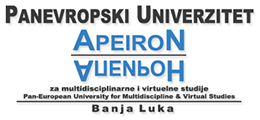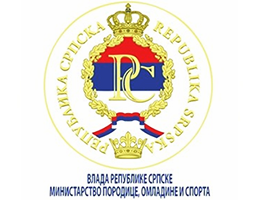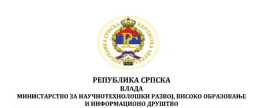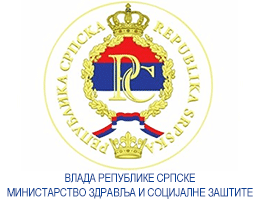An Examination of an 8-Week Online Activity-Specific Skills Program to BMI of Local College Students
Volume 13, Issue 2 (2023)
Volume 13, Issue 2 (2023)
An Examination of an 8-Week Online Activity-Specific Skills Program to BMI of Local College Students
Apstrakt:
Requiring college students to participate in basic resistance training movement patterns and locomotor and
non-locomotor exercises has decreased and improved BMI. This study aimed to examine the eff ectiveness of the online
activity-specifi c skills program to college students’ BMI. This study has employed an experimental research design in which
the students undergo a series of activity-specifi c skills for eight consecutive weeks. Demographic characteristics such as
gender, BMI (pre- and post-test), and the Physical Activity Readiness Questionnaire are all included. Independent Sample
T-Test was utilized to determine the signifi cant diff erence based on the post-test scores of the participants concerning gender.
Lastly, the Paired samples T-test was executed to the signifi cant diff erence in the pre-and-test scores of the participants.
It was found that no signifi cant diff erence was observed in the pre-test scores of the participants; lastly, after performing
the Paired samples t-test, it was found that there was no signifi cant diff erence observed between the pre-and post-test
score of the participants after performing a series of activity-specifi c skills activities for eight weeks. Students’ body mass
indexes were not aff ected by the movement patterns taught in PE 1, which included locomotor, non-locomotor, and basic
resistance training. The results of this study may encourage teachers to reevaluate the effi cacy of the existing physical education
practices or to look for alternatives that have better potential to reduce students’ BMI. Since the study’s fi ndings are
inconclusive, more research with a larger sample size is required to establish the reliability of the claims presented herein.
Ključne riječi:
basic resistance training movement patterns, college student, locomotor movements, non-locomotor movements, online setting, physical education
Puni tekst:
Reference:
Ahmadi, A., Moheb-Mohammadi, F., Navabi, Z. S., Dehghani, M., Heydari, H., Sajjadi, F., & Khodarahmi, S. (2020). The eff ects of aerobic
training, resistance training, combined training, and healthy eating recommendations on lipid profi le and body mass index in overweight
and obese children and adolescents: A randomized clinical trial. ARYA Atherosclerosis, 16(5), 226–234. https://doi.org/10.22122/
ARYA.V16I5.1990
Bolger, L. E., Bolger, L. A., O’ Neill, C., Coughlan, E., O’Brien, W., Lacey, S., & Burns, C. (2018). Age and Sex Diff erences in Fundamental
Movement Skills Among a Cohort of Irish School Children. Journal of Motor Learning and Development, 6(1), 81–100. https://doi.
org/10.1123/jmld.2017-0003
Bulca, Y., Ozdurak, R. H., & Demirhan, G. (2020). The eff ects of digital physical exercise videos on the locomotor skill learning of pre-school
children. European Early Childhood Education Research Journal, 28(2), 231–241. https://doi.org/10.1080/1350293X.2020.1716475
Cerit, E., Özlü, K., Deryahanoğlu, G., Denizci, T., Yamaner, F., Nur, H., Kendirci, P., & Koçak, Ç. V. (2020). Determination of the basic motor
skills and its relationship to BMI and physical activity level in preschooler. African Educational Research Journal, 8(1), 115–123.
Da Boit, M., Sibson, R., Meakin, J. R., Aspden, R. M., Thies, F., Mangoni, A. A., & Gray, S. R. (2016). Sex diff erences in the response to resistance
exercise training in older people. Physiological Reports, 4(12), e12834. https://doi.org/10.14814/phy2.12834
Daveri, M., Fusco, A., Cortis, C., & Mascherini, G. (2022). Eff ectiveness of Diff erent Modalities of Remote Online Training in Young Healthy
Males. Sports, 10(11), 170. https://doi.org/10.3390/sports10110170
Etikan, I. (2016). Comparison of Convenience Sampling and Purposive Sampling. American Journal of Theoretical and Applied Statistics,
Foo, C. chung, Cheung, B., & Chu, K. man. (2021). A comparative study regarding distance learning and the conventional face-to-face approach
conducted problem-based learning tutorial during the COVID-19 pandemic. BMC Medical Education, 21(1), 1–6. https://doi.
org/10.1186/s12909-021-02575-1
Gabriel, J., & Rhonda, D. (2020). Students transition from face to face learning to online learning at higher education: A case study in Trinidad
and Tobago. Educational Research and Reviews, 15(8), 487–494. https://doi.org/10.5897/err2020.4005
Gerald, B. (2018). A Brief Review of Independent, Dependent and One Sample t-test. International Journal of Applied Mathematics and Theoretical
Physics, 4(2), 50. https://doi.org/10.11648/j.ijamtp.20180402.13
Gewalt, S. C., Berger, S., Krisam, R., & Breuer, M. (2022). “Eff ects of the COVID-19 pandemic on university students’ physical health, mental
health and learning, a cross-sectional study including 917 students from eight universities in Germany”. PLOS ONE, 17(8), e0273928.
Guo, H., Schenkelberg, M. A., O’Neill, J. R., Dowda, M., & Pate, R. R. (2018). How Does the Relationship Between Motor Skill Performance
and Body Mass Index Impact Physical Activity in Preschool Children? Pediatric Exercise Science, 30(2), 266–272. https://doi.
org/10.1123/pes.2017-0074
Guo, Y., Liao, M., Cai, W., Yu, X., Li, S., Ke, X., Tan, S., Luo, Z., Cui, Y., Wang, Q., Gao, X., Liu, J., Liu, Y., Zhu, S., & Zeng, F. (2021).
Physical activity, screen exposure and sleep among students during the pandemic of COVID-19. Scientifi c Reports, 11(1), 8529. https://
doi.org/10.1038/s41598-021-88071-4
Idris, F., Zulkipli, I. N., Abdul-Mumin, K. H., Ahmad, S. R., Mitha, S., Rahman, H. A., Rajabalaya, R., David, S. R., & Naing, L. (2021). Academic
experiences, physical and mental health impact of COVID-19 pandemic on students and lecturers in health care education. BMC
Medical Education, 21(1), 542. https://doi.org/10.1186/s12909-021-02968-2
Jeong, H.-C., & So, W.-Y. (2020). Diffi culties of Online Physical Education Classes in Middle and High School and an Effi cient Operation
Plan to Address Them. International Journal of Environmental Research and Public Health, 17(19), 7279. https://doi.org/10.3390/
ijerph17197279
Jiménez Díaz, J., Salazar Rojas, W., & Morera, M. (2015). Age and gender diff erences in fundamental motor skills (original version in English).
Pensar En Movimiento: Revista de Ciencias Del Ejercicio y La Salud, 13(2), 1–16. https://doi.org/10.15517/pensarmov.v13i2.18327
Jin, C.-H., Rhyu, H.-S., & Kim, J. Y. (2018). The eff ects of combined aerobic and resistance training on infl ammatory markers in obese men.
Journal of Exercise Rehabilitation, 14(4), 660–665. https://doi.org/10.12965/jer.1836294.147
Kit, B. K., Akinbami, L. J., Isfahani, N. S., & Ulrich, D. A. (2017). Gross Motor Development in Children Aged 3–5 Years, United States 2012.
Maternal and Child Health Journal, 21(7), 1573–1580. https://doi.org/10.1007/S10995-017-2289-9/METRICS
Korcz, A., Krzysztoszek, J., Łopatka, M., Popeska, B., Podnar, H., Filiz, B., Mileva, E., Kryeziu, A. R., & Bronikowski, M. (2021). Physical
Education Teachers’ Opinion about Online Teaching during the COVID-19 Pandemic—Comparative Study of European Countries.
Sustainability, 13(21), 11730. https://doi.org/10.3390/su132111730
Moustakas, L., & Robrade, D. (2022). The Challenges and Realities of E-Learning during COVID-19: The Case of University Sport and Physical
Education. Challenges, 13(1), 9. https://doi.org/10.3390/challe13010009
Niemistö, D., Finni, T., Cantell, M., Korhonen, E., & Sääkslahti, A. (2020). Individual, Family, and Environmental Correlates of Motor Competence
in Young Children: Regression Model Analysis of Data Obtained from Two Motor Tests. International Journal of Environmental
Research and Public Health, 17(7), 2548. https://doi.org/10.3390/ijerph17072548
Pokhrel, S., & Chhetri, R. (2021). A Literature Review on Impact of COVID-19 Pandemic on Teaching and Learning. Higher Education for
the Future, 8(1), 133–141. https://doi.org/10.1177/2347631120983481
Prevandos, F. G., & Martin, J. T. (2022). Development and Validation of Module in Physical Education 4: Team Sports. International Journal
of Human Movement and Sports Sciences, 10(6), 1327–1336. https://doi.org/10.13189/saj.2022.100624
Roberts, B. M., Nuckols, G., & Krieger, J. W. (2020). Sex Diff erences in Resistance Training: A Systematic Review and Meta-Analysis. Journal
of Strength and Conditioning Research, 34(5), 1448–1460. https://doi.org/10.1519/JSC.0000000000003521
Robinson, L. E. (2011). The relationship between perceived physical competence and fundamental motor skills in preschool children. Child:
Care, Health and Development, 37(4), 589–596. https://doi.org/10.1111/j.1365-2214.2010.01187.x
Ross, A., & Willson, V. L. (2017). Paired Samples T-Test. In Basic and Advanced Statistical Tests (pp. 17–19). SensePublishers. https://doi.
org/10.1007/978-94-6351-086-8_4
Safruddin, S., Nasaruddin, N., Widodo, A., Sobri, M., & Radiusman, R. (2021). Students’ Basic Movement Skills in Physical Education during
the Online Learning. Proceedings of the 2nd Annual Conference on Education and Social Science (ACCESS 2020), 556(Access 2020),
Shin, Y.-A., Kim, K.-H., Suk, M.-H., & Leem, M.-Y. (2012). Eff ect of Resistance Training on Body Composition, Hormone, and Muscle
Strength According to Gender. The Offi cial Journal of the Korean Academy of Kinesiology, 14(2), 23–35. https://doi.org/10.15758/
jkak.2012.14.2.23
Vikberg, S., Björk, S., Nordström, A., Nordström, P., & Hult, A. (2022). Feasibility of an Online Delivered, Home-Based Resistance Training
Program for Older Adults – A Mixed Methods Approach. Frontiers in Psychology, 13(June), 1–11. https://doi.org/10.3389/
fpsyg.2022.869573
Wang, H., Chen, Y., Liu, J., Sun, H., & Gao, W. (2020). A Follow-Up Study of Motor Skill Development and Its Determinants in Preschool
Children from Middle-Income Family. BioMed Research International, 2020, 1–13. https://doi.org/10.1155/2020/6639341
Xia, X., Chao, L., Nan, C., Yin, X., Zheng, H., & Zhang, S. (2022). Fundamental motor skills of kindergarten children in diff erent environments
and ethnic groups in Northwest China. BMC Pediatrics, 22(1), 423. https://doi.org/10.1186/s12887-022-03497-7
Zheng, Y., Ye, W., Korivi, M., Liu, Y., & Hong, F. (2022). Gender Diff erences in Fundamental Motor Skills Profi ciency in Children Aged 3–6
Years: A Systematic Review and Meta-Analysis. International Journal of Environmental Research and Public Health, 19(14), 8318.






